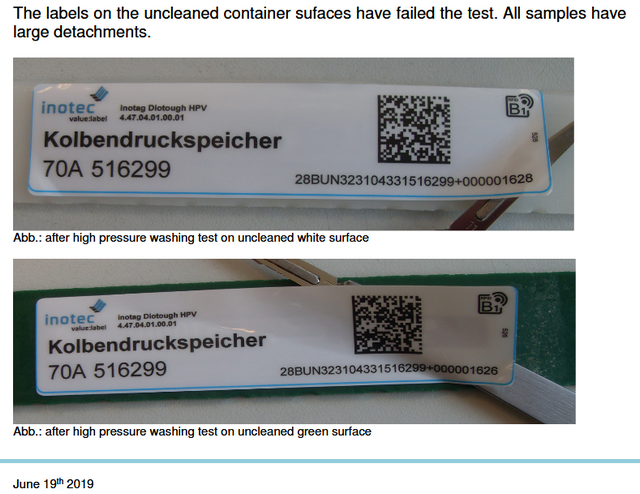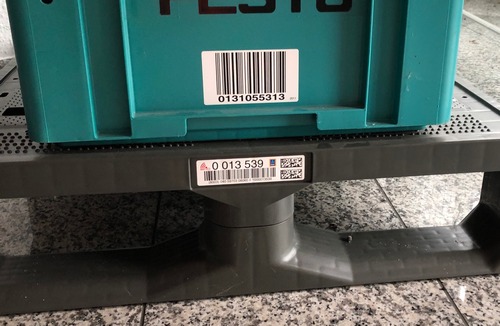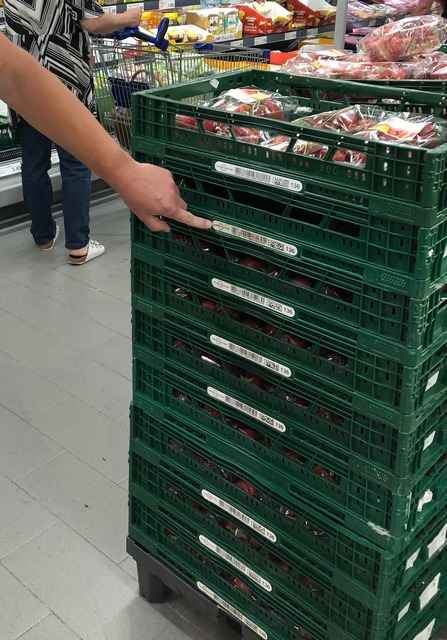Marking returnable containers
The task of marking returnable containers for automatic identification is an important task for creating a tracking system and quality assurance of original products.
The technology of automatic generation of web-passport of products is relevant for many enterprises from food production to complex electronics. Marking returnable containers allows tracking the movement of components, raw materials and materials at all stages and sections of production or logistics chain. The web-passport system can be upgraded to Blockchain technology – when a data chain with information guaranteed against changes is built.
In-Mould Label for Food Boxes and Pallets
The most reliable and long-term method of labeling plastic boxes is the In-Mould label. At the stage of container manufacturing, a label made of a special material is fused into the body. The label is connected to the body of the box and becomes its integral part. Such a label is called In-Mould and is produced individually and exclusively for the needs of a specific customer. The use of an in-mold label is advisable for large batches. Such boxes are ordered by large retail chains, distribution centers and plastic container rental operators.
The next option for marking a plastic box is a self-adhesive label. A label with an appropriate adhesive layer is selected for each box material. The selection and testing stage is very important. Incorrectly selected glue or a dirty surface will not ensure reliable label adhesion. The photo below shows label testing. The label was applied to a cleaned and uncleaned surface of a plastic box. On a cleaned surface, the adhesion coefficient was 25, and on a dirty surface, it was 3.

It is important to apply the self-adhesive label to a clean and degreased surface of the box. This is the main factor that affects the adhesion coefficient. Photo after the test with a high-pressure washer on an uncleaned surface.

One of the largest manufacturers of in-mold labels is Inotec (Germany). Inotec labels are developed and manufactured both as in-mold labels and as self-adhesive labels. RFID chips can be embedded in the labels, which will provide the ability to identify in several ways, as well as to encode additional information (batch, weight of the box). The above-mentioned labeling options are long-term, designed for almost the entire service life of the box.
For temporary labeling of plastic containers, you can use regular polypropylene labels and for single use - paper labels. Application can be both manual and automatic using an applicator. The main identifier when labeling plastic containers is a bar code. Usually, two options are used - linear and QR code.
The box with the product and the employee are identified. Accounting points allow tracking the quality of products, quantity in micro-lots, and also automatically generate statements for piecework payment. Payroll cards are used to identify employees, most often this is a card with an RFID tag, linear and QR code.



 development
development